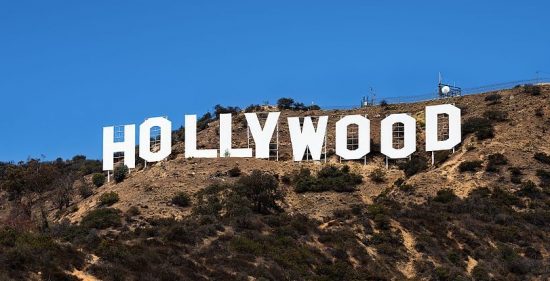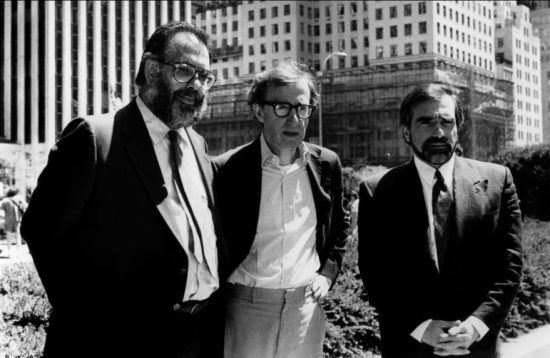The Continuing Influence of the Cinema of the 70s
As soon as 1970 hit, the party was over. As Rock Hudson and Doris Day gave way to Woody Allen, and David Lean packed up his epics, cinema-goers were ready for a new, realistic style of cinema. Think of classic 70’s cinema and you think of Taxi Driver, The Godfather, even The Exorcist if you must. Though each comes from a different genre, with different storytelling concerns, what united them was a new need for authenticity and the freedom to show the controversial and the shocking. To this day, the cinema of that decade is valued for its grit, and its concerns live on the films currently being made. In fact, a lot of the better films since the turn of the millennium have had a 70’s spirit, or have strived to represent that time accurately.
A New Wave
There could be a lot of different reasons for the resurgence – not least that Scorsese is still living, and working. The influence of his generation cannot be over-emphasised. As he and his peers have moved on and developed their viewpoint, the daring and rawness of their early output is refracted through 46 years of great cinema. Catherine Hardwicke and David O. Russell have both acknowledged Francis Ford Coppola’s part in their development as filmmakers, and though both have their own specific style, arguably this very individuality and risk-taking would not be possible without Coppola et al. Often called New Hollywood or the American New Wave, their approach to cinema has been likened to the Nouvelle Vague. The director is directly involved with how the film is made, what is shown and how the film is presented to audiences. The 70’s decade and a few years either end have been viewed as a brief window of freedom for directors and writers, when Hollywood studios allowed art to be made on their buck. In their efforts to unsettle, instead of comfort audiences, New Hollywood gained a reputation for “authenticity”.
What is Authenticity Now?
Authenticity is important a wide range of filmmakers, even those with an agenda directed more towards pastiche or criticism. The example of social commentary and emotional realism that New Hollywood sets us can produce the most surprising films. Mississippi Grind (2015) is very much in the mould of 70’s-inspired storytelling. If follows a pair of erstwhile road buddies on the way to a huge poker match in New Orleans. Its concern with authenticity mostly involves its representation of poker; the rules and the psychological ins and outs. Though the scenes showing hand rankings and key moments are accurate, it’s the rambling pace of the film, and the uncertainty of the characterisation which really brings the 70’s style authenticity. In another vein is Inherent Vice (2014), a comedy directed by Paul Thomas Anderson which manages to combine private investigators, counter-culture, the Vietnam War and a little bit of romance and make it funny. Nothing risks ageing as much as are badly as comedy, so it is perhaps safer not to try and trace the 1970’s too obviously in contemporary comedies like this one. More intriguingly, the film takes the worst of that decade and makes it into dark comedy. Is there something inherently funny about subverting received wisdom about the past, to unsettle the audience. Actually, does that sound familiar?
In a Galaxy Far, Far Away
There is one story that shows more clearly than any other our relationship with 70’s cinema. I will make sure that anyone who hasn’t already caught Rogue One: A Star Wars Story won’t be disappointed, but let me tell you, never have I seen so many 70’s moustaches and side partings. Or so many actors in cloaks striding around shouting “full power! Immediately!”. It’s the real thing. Or, more accurately, it recalls the 1977 original in way that is uncanny. The Star Wars films polarise people, in the most surprising ways. For millions, however, the line between speculative and silly was never crossed thanks to the sincerity of the filmmakers. The question is, whether the contemporary following for Star Wars is so devoted that sincerity is no longer needed, as long as authenticity is preserved. The first Star Wars films were some of the first real blockbusters, as well as the beginning of the now ubiquitous franchise. If the warm and fuzzy feelings we get from the appearance of Rogue One, or even Star Wars; The Force Awakens, are as much about nostalgia as thoughtful filmmaking, what value do they have as direct references to the 1970’s originals? The answer, of course is the admirable and necessary commitment to diversity both films show. This is sincerity for our age.
We see the world so differently now, in 2017, that it can sometimes be shocking to watch films from the 1970’s. So many of the questions we now ask about society were first posed during that period – the whole experience is eerily familiar, yet utterly alien. Will there be a time when the 1970’s become period drama? Let’s hope it doesn’t happen anytime soon; we will have lost the most useful mirror to reflect our times, and the driving spirit of exciting cinema everywhere.












